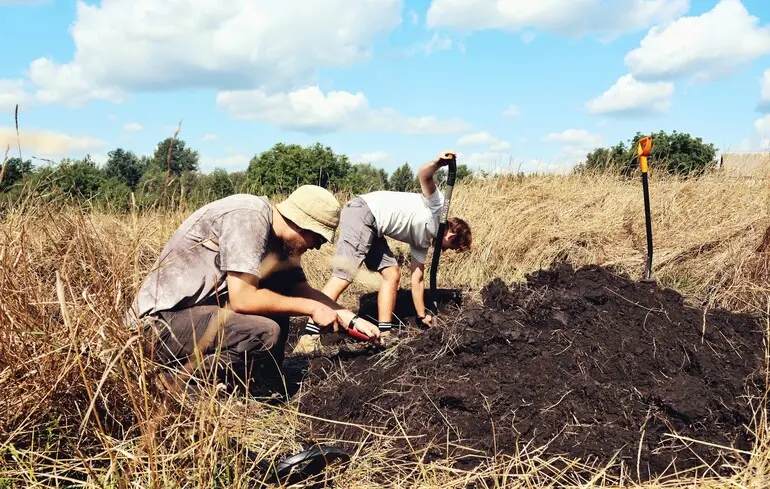From Ancient Times to Modern Days: Archaeological Discoveries in Kotelva Unlock Mysteries of Centuries-Old History

In the village of Kotelva in the Poltava region, archaeologists conducted their first systematic excavations on the site where, in the 18th century, a strategically important fortress stood.
The excavations yielded over a thousand artifacts representing periods from the Bronze Age to Early Modern times.
These remarkable discoveries were announced by staff from the Bilsk Historical and Cultural Reserve, emphasizing that the majority of finds date back to the 17th and 18th centuries, providing valuable insights into the lifestyle and culture of those eras.
Among the uncovered items are fragments of kitchen and tableware, window slats, glass objects, stove tiles, and fishnet weights.
Archaeologists also found remnants of iron household items such as knives, nails, awls, needles, and game pieces.
Notably, several artifacts relate to military history: remains of horse shoes, a flint for firearms, and bullets from pistols.
The collection also includes coins from the Polish-Lithuanian Commonwealth, Sweden, and the Moscow Tsardom, dated between 1640 and 1660.
Besides these later-period items, researchers discovered fragments of Bronze Age pottery, a Scythian arrowhead, and fragments of ancient Russian ceramics with distinctive ornamentation, indicating that the area was inhabited during the times of Kievan Rus’.
This diverse array of artifacts enables a comprehensive reconstruction of the history of Left Bank Ukraine, enriching our understanding of the region’s development.
The collected materials will serve as a foundation for future scholarly work and museum displays.
Experts highlight that exploring such historical sites not only sheds light on the past but also provides valuable information about the strategic role of Cossack fortresses in defense, trade, and administration along border zones.
Overall, these archaeological efforts contribute significantly to understanding local historical processes and bridging material remnants with written sources, opening new avenues for research and discovery.

